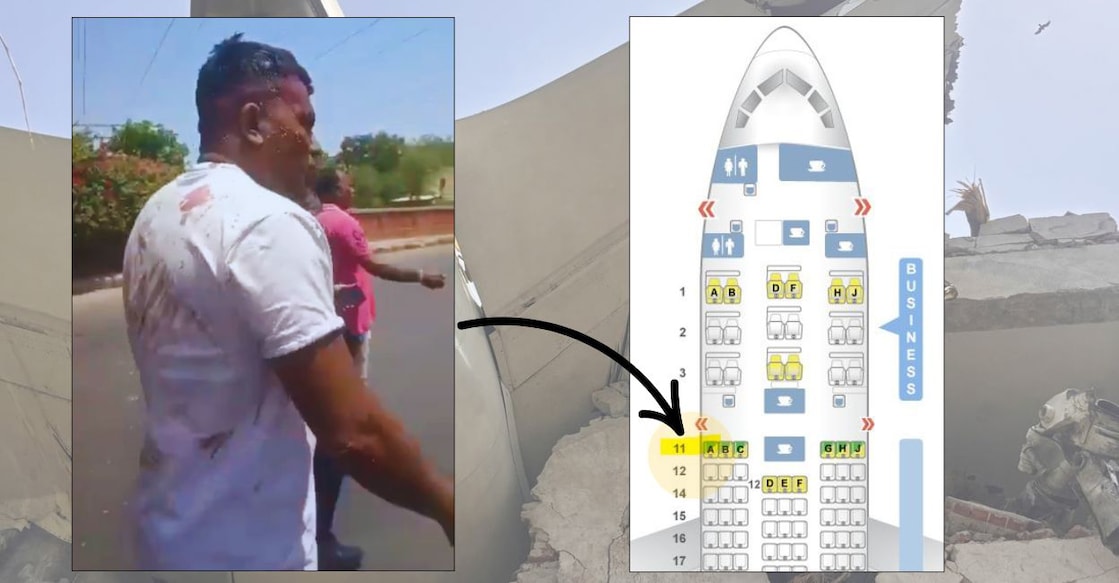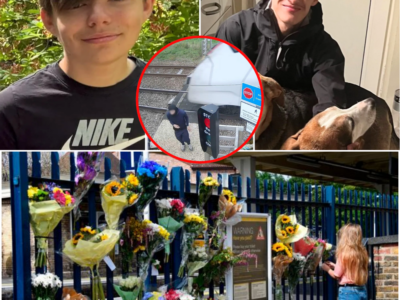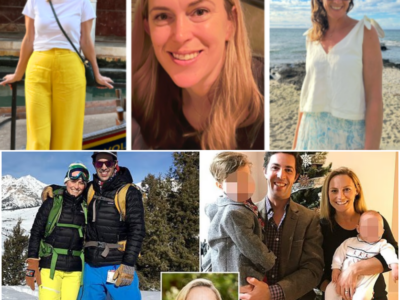On June 12, 2025, the world was stunned by the catastrophic crash of Air India Flight AI171, a Boeing 787-8 Dreamliner bound for London Gatwick Airport from Ahmedabad, India. The flight, carrying 242 passengers and crew, crashed into a medical college hostel moments after takeoff, killing 241 people on board and at least 19 on the ground. Amid the tragedy, one man, Vishwash Kumar Ramesh, a 40-year-old British national of Indian origin, emerged as the sole survivor. While his survival has been hailed as a miracle, Ramesh is grappling with profound psychological trauma and survivor’s guilt, particularly over the loss of his brother, Ajay, who was seated just a few rows away. This article explores Ramesh’s extraordinary escape, the psychological toll of being the sole survivor, and the ongoing treatment he is receiving to cope with his grief and guilt.
The Crash: A Miracle Amid Devastation
The Air India crash was one of the deadliest aviation disasters in a decade, claiming the lives of 241 passengers and crew, including 52 British nationals, as well as several medical students and others on the ground. The plane, which had taken off from Ahmedabad’s international airport, experienced a catastrophic failure seconds after takeoff. Vishwash Ramesh, seated in 11A next to an emergency exit, described the terrifying moments to India’s national broadcaster, DD News: “After takeoff, within 5-10 seconds, it felt like the aircraft was stuck. The green and white cabin lights came on, and I could feel the engine thrust increasing, but it crashed with speed into the building.”

Ramesh’s survival was nothing short of miraculous. The section of the plane where he was seated landed on the ground floor of the medical college hostel, and a broken emergency door provided a narrow escape route. “When my door broke, I saw there was a bit of space,” Ramesh recounted. “I unfastened my seat belt and forced myself out.” Video footage circulating on social media captured Ramesh stumbling barefoot through the wreckage, his face bloodied and his shirt stained, shouting in Gujarati, “Plane fatyo che!” (“The plane exploded!”). Despite his injuries—burns, bruises, and cuts—he walked to an ambulance, guided by first responder Satinder Singh Sandhu, who initially mistook him for a doctor from the medical college.
Tragically, Ramesh’s brother, Ajay, seated in 11J across the aisle, did not survive. Ramesh’s desperate attempts to return to the burning wreckage to find Ajay were thwarted by first responders who restrained him for his safety. “He kept saying his relative was trapped inside,” Sandhu told BBC Gujarati. “We had to drag him to the ambulance.” The loss of his brother has left Ramesh devastated, compounding the physical and emotional scars of the crash.
Survivor’s Guilt: A Heavy Burden
Surviving a disaster that claims the lives of others, especially loved ones, often leads to a psychological phenomenon known as survivor’s guilt. This condition, well-documented in clinical studies, manifests as profound remorse, unworthiness, or fixation on questions like “Why me?” For Ramesh, the guilt is particularly acute, as he believes he could have saved his brother if they had been seated together. “If we had been sat together, we both might have survived,” he told The Sun. “I tried to get two seats together, but someone had already got one. I feel terrible that I could not save Ajay.”

Survivor’s guilt is often an expression of grief and loss, associated with heightened psychopathological symptoms such as anxiety, insomnia, flashbacks, and even suicidal thoughts. For sole survivors like Ramesh, the isolation of being the only one to escape can intensify these feelings. “I wish I was not alive,” he confessed to friends, reflecting the depth of his emotional turmoil. The inability to share his experience with others who survived the same event further compounds his sense of isolation, as noted in research on sole survivorship.
Ramesh’s cousin, Sunny, shared with The Financial Express that the survivor remains deeply disturbed one month after the crash. “He still wakes up in the middle of the night and finds it difficult to sleep again. He doesn’t speak to anyone, not even relatives who are trying to reach out from abroad.” These symptoms suggest post-traumatic stress disorder (PTSD), which affects 8% to 15% of trauma survivors and can lead to intrusive thoughts, nightmares, and avoidance of reminders of the event.
Psychological Treatment and Recovery
Since his discharge from Ahmedabad Civil Hospital on June 17, 2025, Ramesh has been undergoing psychiatric treatment to address his trauma and survivor’s guilt. Dr. Dhaval Gameti, who treated him initially, noted that while Ramesh’s physical injuries—burns and bruises—were not critical, he was “psychologically disturbed” and disoriented. The medical director of the Civil Hospital emphasized the need for ongoing mental health support, given the severity of the trauma.

Psychological treatment for survivor’s guilt and PTSD typically involves a combination of therapies tailored to the individual. According to Russell Jones, a psychologist cited in a 2014 CNN article, exposure therapy is one effective strategy, helping survivors confront and process traumatic memories. Cognitive-behavioral therapy (CBT) is also commonly used to address negative thought patterns, such as Ramesh’s fixation on his inability to save his brother. Additionally, group therapy can provide a sense of community, though this may be challenging for sole survivors who lack peers with shared experiences.
Ramesh’s treatment is likely to include these approaches, though specific details about his therapy have not been disclosed. His cousin’s account suggests that he is struggling with insomnia and social withdrawal, common PTSD symptoms that require professional intervention. Mental health professionals emphasize that lingering guilt and anxiety should not be ignored, as they can lead to severe post-traumatic symptoms if untreated.
The Emotional Funeral and Public Scene
The emotional weight of Ramesh’s loss was evident during his brother Ajay’s funeral on June 18 in Diu, India. Still bandaged and limping, Ramesh carried his brother’s flower-heaped coffin to the crematorium, breaking down multiple times as he shouldered the bier alongside his father. The procession, attended by mourners from the town, was a heart-wrenching scene, with Ramesh’s mother walking alongside in a blue sari. The funeral underscored the personal toll of the tragedy, as Ramesh mourned not only his brother but also the 14 other residents of Diu who perished in the crash.

Compounding Ramesh’s grief was a baseless rumor that surfaced on social media, falsely claiming he had fabricated his presence on the flight. The rumor, which spread rapidly due to public fascination with his survival, added to his psychological burden. On June 20, actor and singer Suchitra Krishnamoorthi posted (and later deleted) a message questioning Ramesh’s story, further fueling speculation. This public scrutiny highlights the additional pressure sole survivors face, as they are often expected to relive their trauma for the media and public.
A Broader Context: Sole Survivors in History
Ramesh’s experience is rare but not unique. Over the decades, a handful of individuals have survived plane crashes that killed all others on board. For example, Cecelia Cichan, the sole survivor of a 1987 Northwest Airlines crash in Michigan, and George Lamson Jr., who survived a 1985 crash in Nevada, both expressed complex feelings of guilt and unworthiness. These survivors, like Ramesh, struggled with the question of why they lived when others did not, a burden that can persist for years.
Research on sole survivorship is limited, as most studies focus on the broader psychological impact of disasters. However, experts like Stephen Wood, an associate clinical professor at Northeastern University, note that surviving such a catastrophic event involves an extraordinary alignment of variables, such as seating position and structural factors. Ramesh’s escape from seat 11A, near an emergency exit, aligns with this, though it defies the conventional wisdom that the back of the plane is safer.
Moving Forward: The Road to Healing
As Ramesh continues his recovery in his ancestral village of Bucharwada, Diu, his journey is far from over. The psychological wounds of losing his brother and surviving a disaster that claimed 271 lives remain raw. His refusal to interact with anyone except family suggests a need for time and space to process his trauma. Support from mental health professionals will be crucial in helping him navigate survivor’s guilt and PTSD, which may persist for months or even years.
The Air India crash has also prompted broader discussions about aviation safety and mental health support for survivors. India’s Aircraft Accident Investigation Bureau is analyzing the plane’s black boxes to determine the cause, with assistance from Boeing and international experts. Meanwhile, Ramesh’s story serves as a poignant reminder of the human cost of such tragedies and the complex emotional aftermath for those who survive.
In the words of Ramesh himself, “It’s a miracle, everything.” Yet, this miracle comes with a heavy burden—one that will require time, therapy, and support to overcome. As he grapples with the loss of his brother and the weight of being the sole survivor, Vishwash Kumar Ramesh’s story is a testament to both the resilience of the human spirit and the profound challenges of surviving when others do not.


